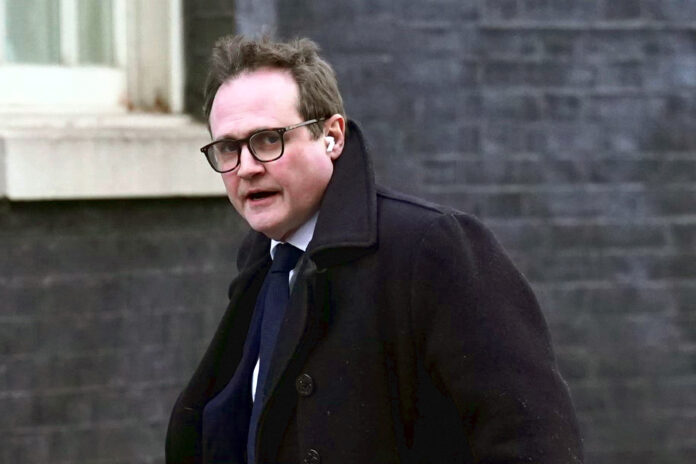Jews in the United Kingdom have felt the aftereffects of the October 7 Hamas atrocities more than most other Jewish communities outside of Israel. For the past two months, huge pro-Palestinian demonstrations have rocked the streets of London. On November 11, a march through central London drew more than 300,000 people. Placards carried by demonstrators bore slogans and imagery that, as Jewish organizations noted, “wouldn’t have looked out of place in Nazi Germany.” Participants, some dressed as Hamas terrorists, carried banners declaring “Resist and Fight Zionism the Disease” and “Welcome to Gaza, Twinned with Auschwitz.” As a result, the UK’s 270,000-strong Jewish community, many of whom have been accosted by anti-Semitic thugs, feels threatened.
According to the British Campaign Against Antisemitism, a survey revealed that half of British Jews have considered living the country because of Jew-hatred. Close to 70% reported concealing the fact that they were Jewish when out in public due to worries about being targeted. And there are good reasons for that, with the rate of anti-Semitic incidents spiking by 1,300%, the organization said.
Part of that spike may be due to the increasing number of immigrants to the UK from countries where Jew-hatred and propaganda against Israel are rife. Although the UK government is trying to change its policies, Prime Minister Rishi Sunak’s attempts to do so have thus far been opposed by the courts.
At the same time, the British government’s support of Israel and its condemnation of Hamas have been resolute and unwavering. Prime Minister Sunak headed to Israel less than two weeks after the attack to show his support.
(One slightly jarring note came this past week when the UK abstained from a UN Security Council vote calling for a ceasefire by Israel rather than vetoing it, as was done by the United States.)
To understand more about the security of the Anglo-Jewish community, I spoke with MP Tom Tugendhat, the UK minister of state for security. Minister Tugendhat is the MP for Tonbridge and Malling. With a master’s in Islamic studies, Mr. Tugendhat’s career before becoming an MP included working as a journalist and public relations professional in Beirut; a Royal Marine in Iraq; and as a representative of the British Foreign Office in Afghanistan, where he set up the National Security Council. He also served in several important roles in the British Army, including as military assistant and principal adviser to the chief of the defence staff.
There are so many things going on in the world post the October 7 atrocities in Israel, and so many things to discuss, both negative and positive. So, let’s start with the very positive. I know that you have been a very strong, moral voice in the support of Israel and the condemnation of terrorism. It is widely appreciated in the global Jewish community that it has been so consistent. I would like to get your thoughts on that.
Sure. The UK government, His Majesty’s government, has been completely clear on our fight against terrorism for years. We stand with Israel today because Israel has been the subject of one of the most vile terrorist attacks that we have seen in a generation. A horrific pogrom of the murder of some 1,200 Israelis is a horrific incident, and we are absolutely clear that it is not only the duty of the nation as the State of Israel but its responsibility to fight terrorism when such incidents happen.
Your government has been very strong, as you said, but do you feel that there is a divide between the people and the government based on what we have seen on the streets of London and elsewhere? Many people have observed not only in your country but around the world that even where the governments do support Israel, the people don’t necessarily follow along.
The support has been very clear. We’ve seen some incidents where individuals have protested, but the reality is that the support for Israel has been very strong. Many people have expressed their support in different ways, and we are extremely clear that we are defending, quite correctly, civilians against terrorism.
To read more, subscribe to Ami





















